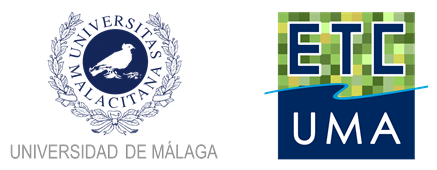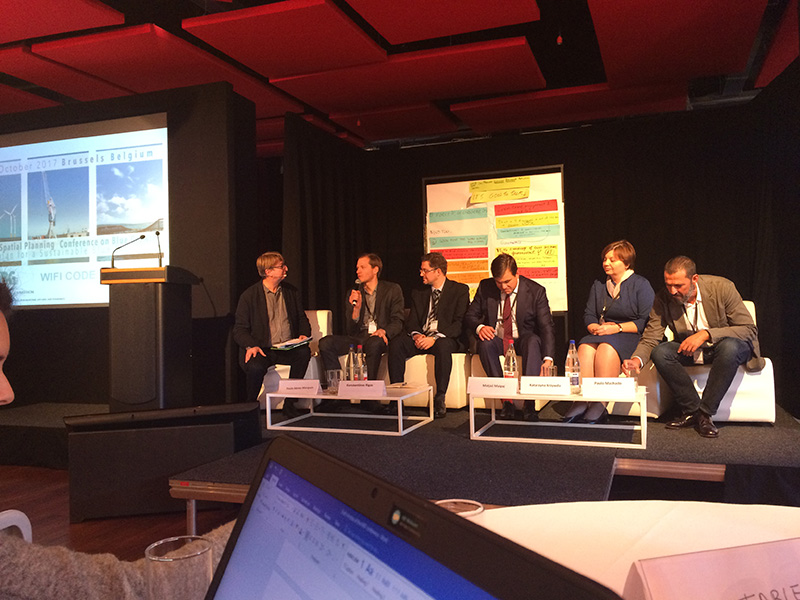The Mediterranean is considered a biodiversity hotspot that has long been shared among more than 20 different countries and economic interests, with tourism, fisheries and agriculture at the centre of its economy. However, Mediterranean natural resources are not infinite and need to be protected and managed by different users in a coordinated and sustainable way.
With this view in mind, the European Topic Centre of the University of Malaga (ETC-UMA), coordinator of the Interreg MED Biodiversity Protection initiative known as PANACeA, participated in the EU Maritime Spatial Planning (MSP) for Blue Growth Conference that took place in Brussels on 11-12 October 2017. Organized to bring together major sea users and stakeholders, the debate highlighted the need for dialogue and cooperation among different sectors and territories in order to share and compare relevant information as the necessary basis for a sustainable planning of our natural resources. The event gathered private sector representatives, MSP actors, scientific organizations, public institutions and EU and national policy makers. So far, we are pleased to have been included in the MSP platform with the Interreg MED AMAre project and PANACeA itself, and we will keep on working hard to contribute to help make their key messages a reality through the Interreg MED Biodiversity Protection Community of projects and its ecosystem based management approach.
Similarly, with the objective of joining forces and ensure a better coordination of efforts, ETC-UMA contributed to the Second Meeting of the Regional Cooperation Platform on Marine Litter organized in Barcelona on 9-10 November 2017 by the UN Environment/Mediterranean Action Plan Coordinating Unit of the Barcelona Convention Secretariat through the Mediterranean Pollution Assessment and Control Programme (MED POL). Attended by some 30 active participants, the Interreg Med Community of Biodiversity Protection projects Act4Litter, AMAre, MedSeaLitter, PANACeA and institutional partners actively involved in designing a joint action plan to tackle the impact of plastics and other marine litter in the Mediterranean.
Stay tuned to hear what the next steps will be and how the Interreg Med projects are planning to contribute in the following weeks. Coming shortly, you can start by joining efforts to bring together the best available data on Mediterranean biodiversity and threats during our Webinar on Data Integration to be held on 10 November 2017 at 15:00 CET.
More information: panacea-med@uma.es



